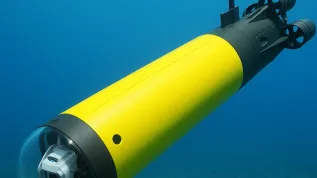
So-called scientific “paper mills” cannot be eliminated through national legislation, but universities can limit their impact through internal rules, funding restrictions and disciplinary action, says a leading legal expert in Poland.
Paper mills are groups or companies that produce fraudulent scientific publications. They may fabricate or manipulate data, plagiarise texts, add unearned co-authorships or citations, or use predatory journals that charge fees while bypassing proper peer review.
But, according to Łukasz Kierznowski, PhD, a specialist in higher-education law at the University of Białystok: “I do not see any way to solve the entire problem from beginning to end at the statutory level. This is a pipe dream.”
Most entities behind large-scale fraudulent publishing operate abroad, he argues, and “Polish law is irrelevant to them.”
“Regulations could therefore only apply internally, at institutions. But what can be done in the act itself? Do we want a definition of a disciplinary offence? It already exists. Copyright infringement regulations? They exist. Codes of ethics, and even criminal provisions? They also exist. You cannot reinvent the wheel,” he says.
“For example, the act could stipulate that questionable publications are not included in evaluations or performance reviews, but how can we distinguish reliable publications from unreliable ones? During university evaluations, which take place every 4–5 years, hundreds of thousands of papers are subjected to a score. There are no resources to verify the reliability of individual scientific papers,” he adds.
But, he continues, several broad mechanisms already in place may help counter misconduct. A scientist may lose their professorship if copyright infringement is proven; academic degrees such as the PhD or habilitation can be invalidated if someone claims authorship of another person’s work; and disciplinary liability applies to misconduct.
“And if a scientist engages in practices such as ghostwriting, adding credit, or buying authorship in a publication – in my opinion, this constitutes disciplinary liability. Scientists are liable for failing to fulfil their duties and for +acts offending against the dignity of the academic profession,” Kierznowski says.
Action, he continues, requires evidence. Full investigations must be carried out, and witnesses or collaborators may be located abroad and difficult to question. Disciplinary cases are handled by committees of academics, meaning “the academic community itself must be convinced to devote time and resources to detecting and combating the phenomenon of paper mills.”
According to Kierznowski, universities can act more directly. Regulations issued by rectors or deans can ban the use of institutional funds for publishing in predatory journals. They can also exclude such publications from staff evaluations or launch disciplinary proceedings when collaboration with paper mills is detected. “Universities can do this, but they must be willing to prevent scientists from benefiting from such pseudo-publications,” he says.
Asked whether paper mills are a new development, Kierznowski says: “The phenomenon of research misconduct is as old as time. Only its forms and scale change. Plagiarism, false authorship, and fabricated scientific research have always existed. The question is whether today’s system, in which companies offering such services can operate with impunity, facilitates this.”
PAP - Science in Poland, Ludwika Tomala (PAP)
lt/ zan/ lm/
tr. RL













